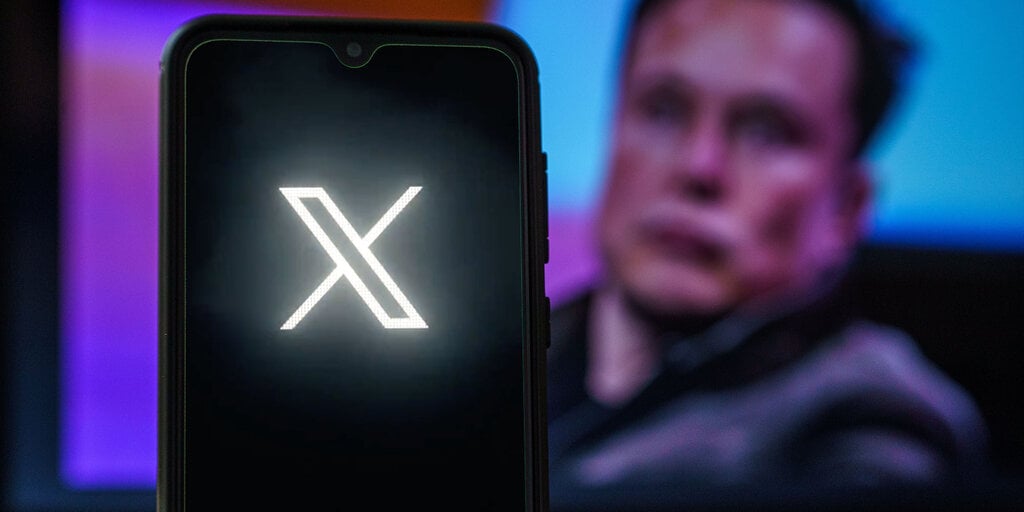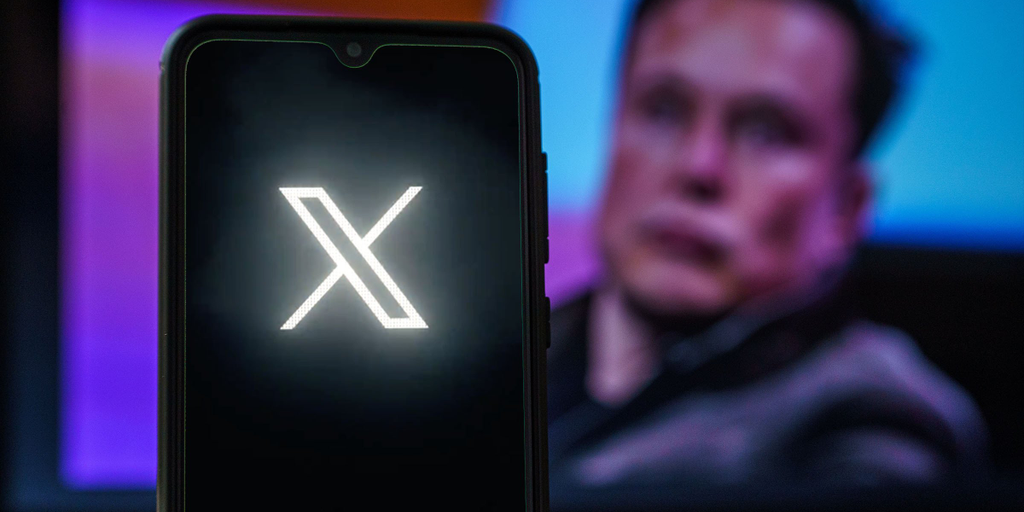artificial intelligence
The Most Eye-Catching and Absurd AI Products Unveiled at CES 2025 So Far
Published
3 months agoon
By
admin

As CES 2025 unfolds, one thing is clear—artificial intelligence is everywhere.
From TVs to vacuum cleaners, consumer electronics companies are racing to showcase the new AI features, sometimes shoehorned, into their products.
Some of these AI-powered products are impressive, while others stretch the meaning of “artificial intelligence” to its limits.
Here’s a look at some of the most eye-catching and occasionally absurd AI-powered products at CES so far.
The Roborock Saros 270: The robot vacuum claw machine
What it Does:
Developed by Roborock, the Saros 270 is a robot vacuum equipped with a robotic arm that moves small objects out of the way while cleaning. It has a charging station and can lift up to 300 grams, or 0.66 pounds.
Why It’s Absurd:
So, it’s cool, but the Saros 270 is limited by its size, making it useful for only picking up small toys and lightweight shoes and socks.
The claw it uses to pick up objects is only good for small and lightweight objects. Beyond that, what’s the point?
Unless the Saros 270 can carefully deposit those objects in a basket like a carnival claw machine, you’re left with slightly rearranged clutter. Fun? Yes. Practical? That’s debatable.
The SwitchBot K20+ Pro: The Swiss Army Knife of robot vacuums
What it does:
The SwitchBot K20+ Pro is another autonomous household robot. It isn’t just a vacuum—it’s an all-in-one home helper.
This robot can carry a humidifier, maneuver between rooms, and even collect floating pet hair from the air. Need to cool down at night? Attach a fan. Want a drink delivered? Add a shelf and let it roll your snacks around.
Why it Stands Out:
Its versatility is impressive. Unlike standard robot vacuums, the K20+ Pro feels more like a quirky butler on wheels.
It’s playful and genuinely useful—if you’re into the idea of your vacuum multitasking as a drink coaster.
Samsung Vision AI: AI for your TV
What it does:
Samsung’s Vision AI is part of their evolving “SmartThings” ecosystem.
Samsung’s Smart TVs now integrate AI to recognize their surroundings, adjust to user preferences, and offer generative AI features like creating digital art for wallpapers and screen savers and providing real-time subtitle translation during live broadcasts.
Why It’s Absurd:
While the tech sounds fancy, AI-generated wallpapers and live translation feel more like marketing gimmicks than necessities.
Plus, the more connected your TV is to other smart appliances, the bigger the cybersecurity risk. Do we really need another entry point for hackers in our living rooms, this time powered by AI?
Omnia Smart Mirror: Your reflection and health hub
What It Does:
Making the rounds at CES, the Omnia Smart Mirror by Withings is a smart mirror that provides AI-driven insights and tracks health metrics. The Omnia Smart Mirror also acts as a smart scale, heart rate monitor, and AI assistant in one, offering real-time health data directly from your reflection.
Why It Stands Out:
The Omnia Smart Mirror stands out by reimaging the mirror as a health tool. Similar to the Tonal workout station, where personal health metrics are clearly displayed. Adding to the appeal of the Omnia Smart Mirror is the option to track weight, cardio, body composition, and sleep patterns…if it ever launches.
LeafyPod: The Self-Watering Planter that thinks for you
What it Does:
LeafyPod is an AI-powered, self-watering smart planter that makes plant care effortless.
The LeafyPod is equipped with sensors that monitor soil moisture, light, temperature, and humidity, and it automatically adjusts watering schedules to suit your plant’s needs.
Why It Stands Out:
By automating plant care, LeafyPod will appeal to those who want green spaces but lack a green thumb. It ensures plants receive optimal care without constant attention.
The LeafyPod’s water reservoir can hold enough water to last up to four weeks, and a mobile app lets users monitor their plants and the surrounding environment.
AFEELA by Sony Honda Mobility: The intelligent EV
What It Does:
A collaboration between Sony and Honda, the Afeela is an electric car that blends advanced AI and sensor technology to elevate the driving experience.
The Afeela comes with 40 sensors, including cameras, LiDAR, radar, and ultrasonic units—Afeela offers automated driving assistance and immersive in-car entertainment.
Why It Stands Out:
One of its most unique features is in the cabin, where the driver can control in-car functions using natural voice prompts with the Afeela “Personal Agent” and receive activity suggestions.
Views and maps on the onboard display use Epic Games’ Unreal Engine, which hints at future features that could see the Afeela becoming not only a driving experience but also an entertainment hub.
While this is only a small sample of the innovations being unveiled at CES, it shows the AI arms race is still very much alive and well.
Edited by Sebastian Sinclair
Generally Intelligent Newsletter
A weekly AI journey narrated by Gen, a generative AI model.
Source link
You may like


Bitcoin Trades Above $79K as Asia Markets React to Trump Tariffs


Memecoin platform Pump.fun brings livestream feature back to 5% of users


Bitcoin Price On The Verge Of Explosive 15% Breakout As Analyst Spots Triangle Formation


Strategy CEO Makes The Case For Corporate Bitcoin Adoption In MIT Keynote


Hackers Hammer Android and iPhone Users As Bank Account Attacks Surge 258% in One Year: Kaspersky


Cryptocurrencies to watch this week: Aptos, XRP, Solana
artificial intelligence
Elon Musk Folds X Into xAI, Creating a $113 Billion Juggernaut
Published
1 week agoon
March 29, 2025By
admin

In a consolidation of his tech businesses, X owner Elon Musk said in a post on Friday that xAI, the developers of Grok, had acquired X (formerly Twitter) in an all-stock transaction. According to Musk, the merger values xAI at $80 billion and X at $33 billion.
Musk bought Twitter for $44 billion in April 2022. By October 2024, Fidelity Investments adjusted the valuation of its stake in X, estimating the company’s overall value to be approximately $9.4 billion.
Though its valuation had recovered somewhat by December 2024, it was still down a whopping 77% from Musk’s purchase price. How Musk arrived at a $33 billion valuation, in other words, would make for interesting reading.
@xAI has acquired @X in an all-stock transaction. The combination values xAI at $80 billion and X at $33 billion ($45B less $12B debt).
Since its founding two years ago, xAI has rapidly become one of the leading AI labs in the world, building models and data centers at…
— Elon Musk (@elonmusk) March 28, 2025
Already the head of several companies, including SpaceX and Tesla, Musk launched xAI in July 2023, a year after purchasing Twitter. While he said the goal of xAI was to “understand reality,” an ongoing feud with former business partner OpenAI CEO Sam Altman was also a driving factor.
“Today, we officially take the step to combine the data, models, compute, distribution, and talent. This combination will unlock immense potential by blending xAI’s advanced AI capability and expertise with X’s massive reach,” Musk wrote on X Friday. “The combined company will deliver smarter, more meaningful experiences to billions of people while staying true to our core mission of seeking truth and advancing knowledge.”
Calling X “the digital town square,” Musk said the platform boasted over 600 million active users. However, Meta, which launched a rival social media platform, Threads, in July 2023, and Bluesky, which launched in February of that year, have been trying to woo away users.
Bluesky’s user count surpassed 27.44 million users in January 2025, many of whom had left Twitter after Musk’s takeover. At the same time, bolstered by its connections to Facebook and Instagram, Threads had over 320 million monthly active users as of February 2025.
Musk made headlines in July of last year when it was revealed that Grok would be trained on X user data. The setting can be disabled, but is on by default for user accounts.
Some social media users jeered today’s announcement, mocking the apparently sizable valuation boost in a deal between two of Musk’s own companies.
“I also sold my 2008 Honda Accord to myself for $1 million,” New York Times tech reporter Ryan Mac said on Bluesky.
“Wait a min…what’s different though… other than on paper?” an X user asked.
The merger, however, could serve a more pragmatic purpose. With X still carrying significant debt—$12 billion, according to Musk’s tweet—folding it into the xAI umbrella could give the company access to new investors, improved valuation, and a narrative pivot away from Twitter’s chaotic takeover.
“This will allow us to build a platform that doesn’t just reflect the world but actively accelerates human progress,” he said.
Generally Intelligent Newsletter
A weekly AI journey narrated by Gen, a generative AI model.
Source link
artificial intelligence
Ancient Mystery or Modern Hoax? Experts Debunk Giza Pyramid Claims
Published
2 weeks agoon
March 25, 2025By
admin

Ever since the pyramids of Egypt rose from the desert over 4,000 years ago, people have wondered how they were built—sparking centuries of speculation, fringe theories, and wild claims involving lost technologies and extraterrestrials.
That speculation got a modern boost last fall when a Chinese research team claimed to have used radar to detect plasma bubbles above the Great Pyramid of Giza. These reports reignited online theories and alternative histories.
Building on that momentum, a group known as the Khafre Project, led by Professor Corrado Malanga from Italy’s University of Pisa and Researcher Filippo Biondi from the University of Strathclyde in Scotland, attracted attention last week with its own dramatic claims of a vast network of underground structures beneath the Pyramid of Khafre, reaching depths of up to 2,000 feet.
Accompanied by detailed graphics and viral videos, the group’s assertions quickly spread across social media, breathing new life into old mysteries.
X lit up with speculation, including theories that the chambers amplified Earth’s low-frequency electromagnetic waves—possibly functioning as an ancient power plant. Some even suggested the find could rewrite our understanding of the pyramids.
“The images suggest a hidden world under the feet of the Great Pyramids: halls and shafts that have waited millennia to be found,” technologist Brian Roemmele wrote in a blog post. “Such a scenario has an almost storybook allure as if turning the page on a chapter that historians didn’t know existed.”
Debunking the myth
However, Egyptologist and historian Flora Anthony wasn’t buying into the hype.
“Something seemed off, so I looked up the original source, read through it, and realized the paper had nothing to do with the images or claims being shared in the media,” she told Decrypt. “Turns out, the article isn’t peer-reviewed. Someone familiar with the journal where the report was published said they publish quickly and aren’t established in the field—which matters since peer review is important.”
The pyramids on the Giza Plateau—built during Egypt’s Fourth Dynasty between 2600 B.C. and 2500 B.C.—were royal tombs for the pharaohs Khufu, Khafre, and Menkaure.
The idea that extraterrestrials may have played a role in constructing the pyramids has long been a staple of fringe science and pop culture.
Proponents of this “Ancient Alien” theory point to the monuments’ precise alignment, massive scale, and engineering complexity as evidence that ancient civilizations couldn’t have built them alone.
“The people behind this aren’t scientists. One is a UFO researcher who believes aliens are interdimensional parasites that hijack human souls,” Anthony said. “The other writes conspiracy books about a lost, pre-dynastic Egyptian civilization and recently promoted a so-called ‘harmonic investigation’ of the Great Pyramid using a technology he claims to have patented.”
While their claims might sound impressive at first glance, there’s nothing solid underneath, Anthony added.
“None of it is peer-reviewed, credible, or based in real science,” she said. “It’s not science. It’s not history.”
Pseudoscience
Ancient Aliens theory, Anthony said, is rooted in pseudo-archaeology, eugenics, and historical racism, promoting the idea that African and Mesoamerican civilizations couldn’t have built monumental structures like the pyramids without help from extraterrestrials.
“These theories uphold white supremacy by pushing a false narrative of white superiority,” Anthony said. “No one questions how medieval European peasants—living in filth without basic sanitation—built intricate cathedrals. But when Africans or Mesoamericans build pyramids, suddenly it must be aliens.”
On March 16, The Khafre Project presented apparent evidence of five chambers and eight shafts, using annotated tomographic images and artist renderings to illustrate their findings.
Yet while social media continues to buzz with wild theories, Egyptologists, including Salima Ikram, a professor of Egyptology at the American University in Cairo, are unconvinced.
“It all sounds very improbable to me as most machinery cannot penetrate that deeply, and there is no data to evaluate this claim,” Ikram told Decrypt. “So far, it seems it is in the news, with no peer-reviewed paper or raw data to back this up. And the technology does not seem capable of what they claim.”
Ikram added that Egyptian authorities confirmed they had not granted the Khafre Project permission to conduct any work at the site.
Likewise, the fact-checking website Snopes investigated the Khafre Project’s claims and declared them false in a recent report.
“Despite the popularity of the claim, there is no evidence to support it,” the report said. “In addition, no credible news outlets or scientific publications have reported on this rumor.”
Digging to the truth
The idea of using radar technology to scan the pyramids is not new.
Radar technology has been used multiple times to scan the pyramids of Giza, most notably in 2016 as part of the ScanPyramids project, revealing hidden voids and structural anomalies within the ancient monuments.
In 2022, researchers Corrado Malanga and Filippo Biondi conducted a synthetic aperture radar scan on the Khufu Pyramid, which many suspect is the basis for the Khafre Project’s images.
According to Snopes, the Khafre Project’s research has not been peer-reviewed or corroborated by credible archaeologists, pointing to what the organization called “Malanga’s well-documented interest in UFO and alien abduction research as well as Dunn’s “power plant” theory.”
“Additionally, one of the most popular images being shared in support of the claim, depicting a cross-section of the pyramid and the alleged structures, was generated using artificial intelligence,” Snopes said. “Uploading the image to the AI-detection platform Hive Moderation resulted in a 99.9% chance the image was generated using AI.”
Ultimately, the story says more about our appetite for mystery than it does about any discovery beneath the pyramids.
Until actual evidence surfaces, the only thing buried beneath the Giza Plateau is the truth—and for now, it’s staying that way.
Edited by Sebastian Sinclair
Generally Intelligent Newsletter
A weekly AI journey narrated by Gen, a generative AI model.
Source link
artificial intelligence
Swedish Film ‘Watch the Skies’ Set for US Release With AI ‘Visual Dubbing’
Published
2 weeks agoon
March 23, 2025By
admin

When Swedish UFO film “Watch the Skies” hits U.S. cinemas this May, audiences won’t be able to tell that it wasn’t made in English.
The film is the first full theatrical release to showcase “visual dubbing” technology from AI firm Flawless, which enables actors’ performances to be digitally lip-synced with foreign-language dubs.
“Watch the Skies” follows rebellious teenager Denise, who teams up with a club of UFO watchers to solve the mystery of her missing father. The film was shot in Swedish, and released there under the title “UFO Sweden.” However, for its U.S. release, the original cast have re-recorded their performances in English, with Flawless using its TrueSync machine learning technology to digitally alter their lip movements so that they sync up with the English dialogue.
“Flawless and their technology gives us the opportunity to release the film for a much larger audience,” said writer-director Victor Danell in a making-of featurette.
The filmmakers stress that the use of the technique has “full endorsement from SAG,” the actors’ union, which went on strike in 2023 amid concerns over the “threat” posed by AI to the profession.
“A lot of filmmakers and a lot of actors will be afraid of this technology at first, but we have the creative control, and to act out the film in English was a real exciting experience,” said Danell, adding that, “It’s still our movie, it’s still the actors’ performance, and that’s the key part.”
What is TrueSync?
In a 2023 presentation, Flawless co-founder Scott Mann explained that the company’s TrueSync technology uses deep learning to create a volumetric 3D representation of the actors’ faces throughout a film, which can then be altered to match the dubbed dialogue.
TrueSync was previously used on the 2022 film “Fall” to remove swearing for a PG-13 edit, while another of the company’s products, DeepEditor, enables an actor’s performance to be extracted from one scene and applied to another scene, without the need for reshoots.
The company has partnered with distributor XYZ Films to release a slate of features localized using TrueSync, including “Run Lola Run” director Tom Tykwer’s upcoming “The Light,” horror feature “Vincent Must Die,” and South Korean film “Smugglers.”
Edited by Andrew Hayward
Generally Intelligent Newsletter
A weekly AI journey narrated by Gen, a generative AI model.
Source link

Bitcoin Trades Above $79K as Asia Markets React to Trump Tariffs

Memecoin platform Pump.fun brings livestream feature back to 5% of users

Bitcoin Price On The Verge Of Explosive 15% Breakout As Analyst Spots Triangle Formation

Strategy CEO Makes The Case For Corporate Bitcoin Adoption In MIT Keynote

Hackers Hammer Android and iPhone Users As Bank Account Attacks Surge 258% in One Year: Kaspersky

Cryptocurrencies to watch this week: Aptos, XRP, Solana

This Week in Crypto Games: ‘Off the Grid’ Token Live, Logan Paul ‘CryptoZoo’ Lawsuit Continues

Crypto Liquidations hit $600M as BTC Plunges Below $80K First Time in 25-days

Bitcoin (BTC) Price Posts Worst Q1 in a Decade, Raising Questions About Where the Cycle Stands

Stablecoins are the best way to ensure US dollar dominance — Web3 CEO

Chainlink (LINK) Targets Rebound To $19 — But Only If This Key Support Holds

NFT industry in trouble as activity slows, market collapses

US Tech Sector About To Witness ‘Economic Armageddon’ Amid Trump’s Tariffs, According to Wealth Management Exec

XRP’s Open Interest Surges Above $3 Billion, Will Price Follow?

This Week in Bitcoin: BTC Holds Steady as Trump’s Trade War Wrecks Stocks

Arthur Hayes, Murad’s Prediction For Meme Coins, AI & DeFi Coins For 2025

Expert Sees Bitcoin Dipping To $50K While Bullish Signs Persist

Aptos Leverages Chainlink To Enhance Scalability and Data Access

Bitcoin Could Rally to $80,000 on the Eve of US Elections

Sonic Now ‘Golden Standard’ of Layer-2s After Scaling Transactions to 16,000+ per Second, Says Andre Cronje

Institutional Investors Go All In on Crypto as 57% Plan to Boost Allocations as Bull Run Heats Up, Sygnum Survey Reveals

Crypto’s Big Trump Gamble Is Risky

Ripple-SEC Case Ends, But These 3 Rivals Could Jump 500x

Has The Bitcoin Price Already Peaked?

A16z-backed Espresso announces mainnet launch of core product

Xmas Altcoin Rally Insights by BNM Agent I

Blockchain groups challenge new broker reporting rule

The Future of Bitcoin: Scaling, Institutional Adoption, and Strategic Reserves with Rich Rines

Trump’s Coin Is About As Revolutionary As OneCoin

I’m Grateful for Trump’s Embrace of Bitcoin
Trending

 24/7 Cryptocurrency News5 months ago
24/7 Cryptocurrency News5 months agoArthur Hayes, Murad’s Prediction For Meme Coins, AI & DeFi Coins For 2025

 Bitcoin3 months ago
Bitcoin3 months agoExpert Sees Bitcoin Dipping To $50K While Bullish Signs Persist

 24/7 Cryptocurrency News3 months ago
24/7 Cryptocurrency News3 months agoAptos Leverages Chainlink To Enhance Scalability and Data Access

 Bitcoin5 months ago
Bitcoin5 months agoBitcoin Could Rally to $80,000 on the Eve of US Elections

 Altcoins2 months ago
Altcoins2 months agoSonic Now ‘Golden Standard’ of Layer-2s After Scaling Transactions to 16,000+ per Second, Says Andre Cronje

 Bitcoin5 months ago
Bitcoin5 months agoInstitutional Investors Go All In on Crypto as 57% Plan to Boost Allocations as Bull Run Heats Up, Sygnum Survey Reveals

 Opinion5 months ago
Opinion5 months agoCrypto’s Big Trump Gamble Is Risky

 Price analysis5 months ago
Price analysis5 months agoRipple-SEC Case Ends, But These 3 Rivals Could Jump 500x


